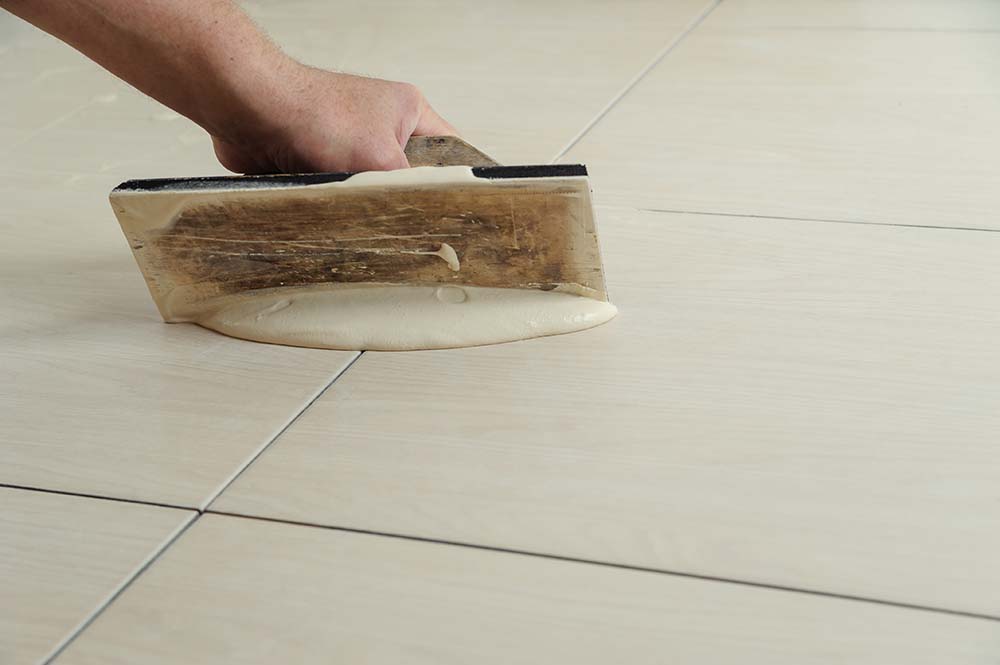Ever heard that epoxy tile grout is the ultimate solution for all your tiling needs? You might want to reconsider. While it offers many benefits, there are some drawbacks to using epoxy tile grout that you should be aware of. From application challenges to potential staining issues, these disadvantages could impact your tiling project more than you realize.
Application Challenges
- When applying epoxy tile grout, ensure thorough surface preparation to prevent adhesion issues. Properly clean and dry the surface before starting the application process. Epoxy grout requires precise installation techniques for optimal results. Mix the components following the manufacturer’s instructions to achieve the correct consistency. Apply the grout with a rubber float at a 45-degree angle, pressing it into the joints to ensure full coverage. Use a damp sponge to remove excess grout from the tile surface before it hardens.
- Maintenance requirements for epoxy tile grout include regular cleaning with a pH-neutral cleaner to prevent buildup and discoloration. Avoid using harsh chemicals that can deteriorate the grout over time. Inspect the grout joints periodically for any signs of damage or cracking. Address any issues promptly to prevent further deterioration. With proper installation techniques and regular maintenance, epoxy tile grout can provide a durable and long-lasting solution for your tiled surfaces.
Staining Potential
- To address the staining potential of epoxy tile grout, thorough understanding of its composition and characteristics is essential. Epoxy grout is highly resistant to stains, which is one of its main advantages over traditional cement-based grouts. However, it isn’t entirely immune to staining. While the epoxy itself is non-porous and water-resistant, certain substances like oils, acids, or harsh chemicals can still cause discoloration if left on the grout for an extended period.
- To maintain the stain resistance of epoxy grout, regular cleaning is crucial. Simple routine cleaning with a mild detergent and water can help prevent any potential staining. Additionally, avoiding the use of abrasive cleaners or tools that could damage the grout’s surface is important for long-term durability. Despite its staining potential, proper maintenance and care can ensure that epoxy tile grout remains looking pristine for years to come. With its exceptional durability and resistance to moisture, epoxy grout can be a great choice for areas prone to staining, as long as it’s properly cared for.

Limited Color Options
- Consider selecting epoxy tile grout cautiously due to its limited color options compared to other grout types. While epoxy grout provides excellent durability and stain resistance, its color choices are more restricted. This limitation can impact the overall aesthetics of your tiled surface.
- Color consistency is a crucial factor to consider when opting for epoxy tile grout. Unlike cementitious grout, which offers a wide range of shades and tones, epoxy grout has fewer options. This can be a drawback if you’re aiming for a specific color scheme or trying to match existing tiles. The lack of variety may constrain your design flexibility and limit your creativity when planning your project.
- When working on a design that requires intricate color coordination or a custom look, the restricted color palette of epoxy grout may pose a challenge. It’s essential to weigh the benefits of epoxy grout against the potential limitations in color choices to ensure your final result meets your design expectations.
Rigidity Issues
- With epoxy tile grout, rigidity issues may arise due to its unique composition and characteristics. While epoxy grout is known for its durability and resistance to stains and chemicals, its lack of flexibility can pose concerns in certain situations. The rigidity of epoxy grout can lead to issues in areas where there’s constant movement or shifting, such as in homes with unstable foundations or in regions prone to earthquakes.
- Maintenance requirements also play a crucial role in the rigidity issues of epoxy tile grout. Unlike traditional cement grout, epoxy grout isn’t porous, making it resistant to water and stains. However, this non-porous nature can make it more challenging to repair or replace if it does crack or chip.
- The inflexibility of epoxy grout can cause it to crack under pressure, requiring extensive measures to fix, which may involve removing and replacing entire sections of grout rather than simple spot repairs. Therefore, when using epoxy tile grout, it’s essential to consider the potential flexibility concerns and the maintenance requirements associated with its rigidity.
Cost Considerations
- When evaluating the use of epoxy tile grout, the initial cost considerations are a crucial aspect to factor into your decision-making process. Epoxy tile grout generally comes at a higher price point compared to traditional cement-based grout. However, the long-term cost efficiency of epoxy grout should also be taken into account. While the upfront cost may be higher, epoxy grout is known for its durability and resistance to stains, cracks, and chemicals, which can lead to fewer repairs and replacements over time.
- In terms of the installation process, epoxy grout can be more challenging to work with compared to standard grout. Its application requires precision and quick work due to its fast setting time. Therefore, if you aren’t experienced in grouting or if you’re hiring a professional for the installation, the labor costs may be higher than with traditional grout. Additionally, the specialized tools and techniques needed for epoxy grout application can add to the overall cost of the project.
Conclusion
Overall, while epoxy tile grout can offer durability and water resistance, it comes with its fair share of disadvantages. From application challenges to limited color options and potential staining issues, there are several factors to consider before choosing epoxy grout for your tiling project. Additionally, the rigidity of epoxy grout and the higher cost compared to traditional grout options may also be deterrents for some homeowners.